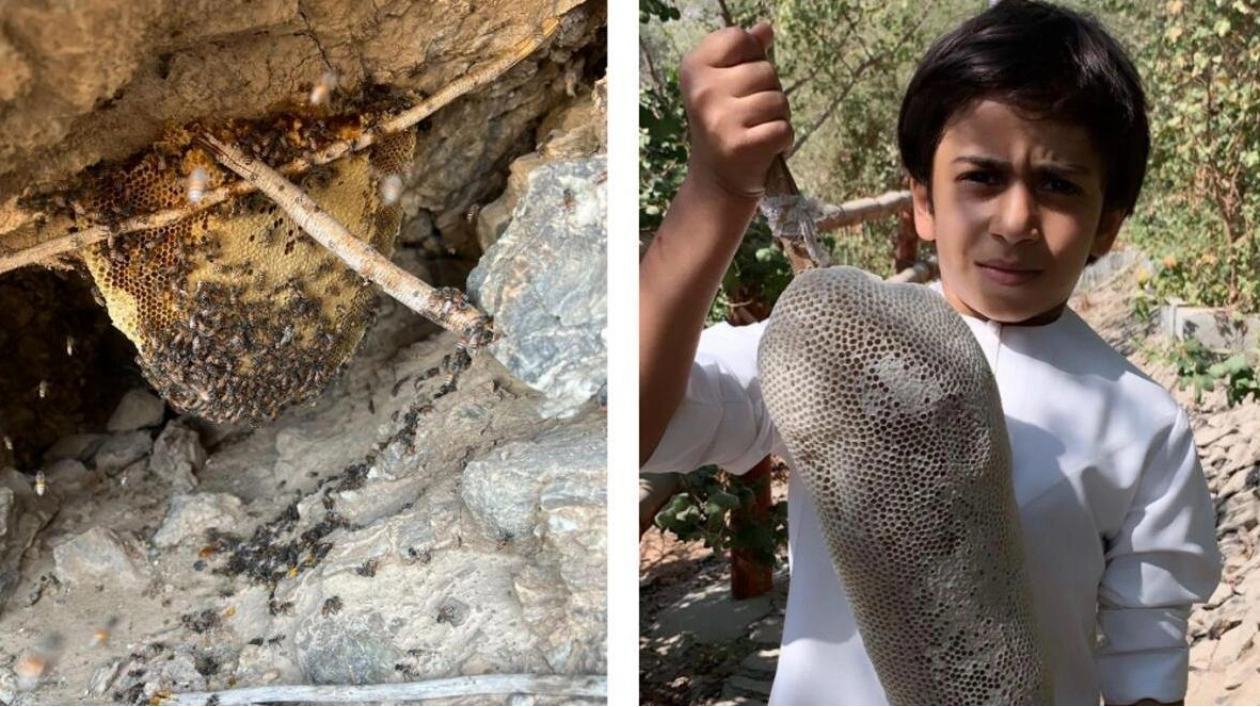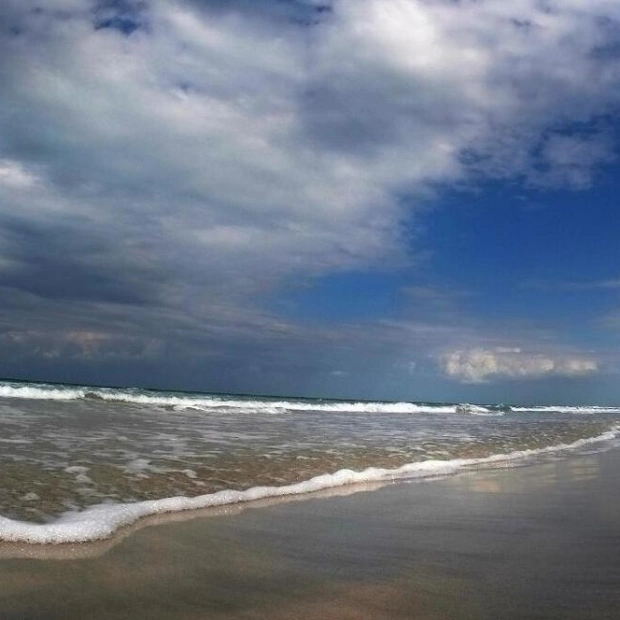In the rugged mountains of the UAE, 12-year-old Saeed Rashid Al Hifaiti has become the youngest Emirati to take on the challenging task of honey hunting. From dawn until midday, Saeed joins his father and his five brothers in their search for honey, carrying on a family tradition that dates back generations.
Despite his young age, Saeed has already faced the dangers of bee stings, snakes, and treacherous terrain, proving his determination. Saeed’s journey into the world of honey hunting began at the age of seven, when he first accompanied his father and his older brothers to the mountains. Although initially fearful of bee stings, Saeed soon gained confidence, learning the delicate art of harvesting honey with patience and skill.
“My first experience was scary because of the bee stings, but after watching how my father and brothers handled it, I became more comfortable,” Saeed said. “A week ago, I harvested honey on my own too.” The Al Hifaiti family hails from Fujairah, where honey hunting has been a tradition for generations. “We’ve lived off honey for as long as I can remember,” says 30-year-old Ahmed Rashid Al Hifaiti, Saeed’s older brother. “Our ancestors used to barter honey in the mountains and sell it in Dubai to earn money and buy things that they needed. Now, we continue that tradition.”
In the past, honey hunting was not just a business; it was also a way of life that came with a deep respect for the land and each other. According to Ahmed, there was an unspoken rule among those who searched for honey. “When we found a hive that wasn’t too large, we would mark it so that others wouldn't harvest it,” he explains. “The idea was that if someone else saw the mark, they would know it was ours and wait until we returned. There was respect among us – no one would take what belonged to someone else.”
The Al Hifaiti family consists of six brothers, all of whom are involved in the honey hunting business. “It’s a family affair,” says Ahmed. “Even though Saeed is the youngest, he’s already learned how to do it. We take him with us because it’s important to pass down this knowledge.” Together, or each by himself, the brothers work tirelessly in the mountains to find and harvest honey, a task that requires endurance, skill, and a deep respect for nature without anything covering their body or face, they know the ways to deal with the bees.
Ahmed mentions that there are honey places that can only be reached by a person of a smaller stature. So, by teaching their younger brother, he can reach the hive and cut it by himself. However, honey hunting is not without its challenges. The family often ventures into remote and difficult-to-reach areas where steep climbs, narrow paths, and hidden dangers make the search for honey physically demanding.
Sometimes, they must rappel down cliffs or squeeze into tight spaces to access the honeycombs. “This work is dangerous,” says Ahmed. “We’ve come across snakes, cliffs, and difficult terrain, but the reward of finding honey makes it worth the effort.” Ahmed also has his own story to tell. “Once, I reached a high spot in the mountains and found two honeycombs,” he says. “I harvested one, but I noticed that I can’t go down, I spent an hour trying to figure out how to get down. I was alone, and there was no signal to call for help. Eventually, I made my way down safely, but it was scary.”
The Al Hifaiti brothers take their work seriously, and each trip into the mountains requires careful planning. They usually carry about four liters of water with them. “When the water runs out, it gets difficult. We get tired, and we’re far from any supplies,” says Ahmed. “Once, I even injured my foot and had to limp down the mountain. And sometimes, there’s no cell service at all, so we have to rely on each other if we were together.”
There are two types of honey — Sidr and Samar tree. Sidr honey, known for its cool, thick consistency, is harvested during the cooler months, from October to December. It's known for its medicinal properties and can fetch up to Dh1,000 per kilogram. Samar honey, on the other hand, is harvested in the summer months and requires much more effort to find, often bringing in a higher price of up to Dh1,500 per kilogram.
Ahmed recalls that the best honey harvest he had was last year, when he managed to gather a remarkable 40 kilograms. “The weather was just right last year – the rains, and the extra vegetation in the mountains boosted the honey production. It was a great season,” says Ahmed. For Saeed and his brothers, honey hunting is more than just a family business; it is a way to connect with his roots. Their passion and dedication to preserving this ancient practice serve as an inspiring reminder of how traditions can thrive through the efforts of a new generation.
Source link: https://www.khaleejtimes.com






